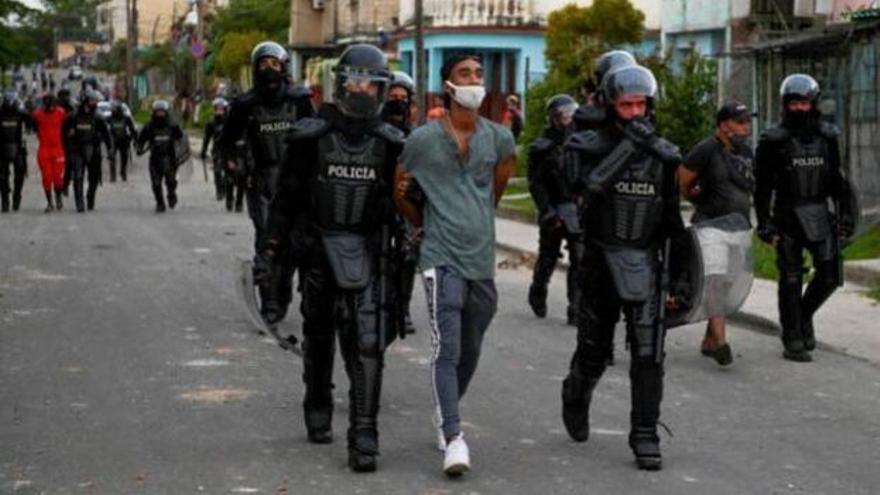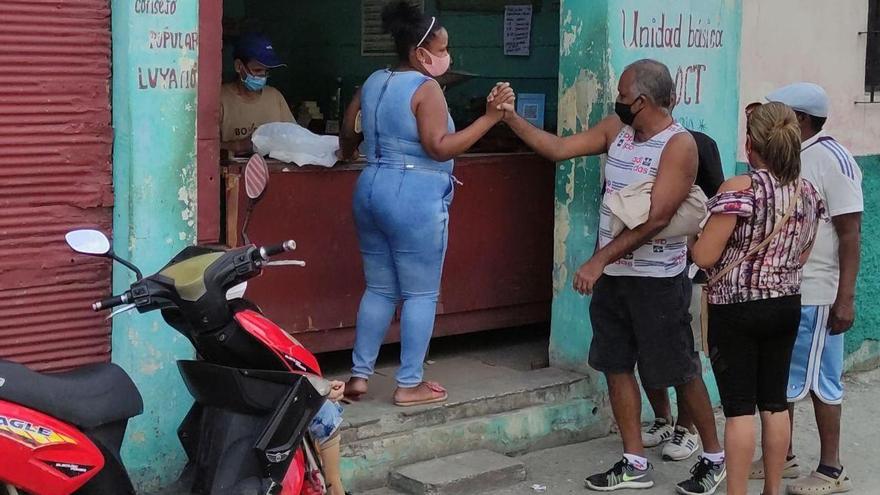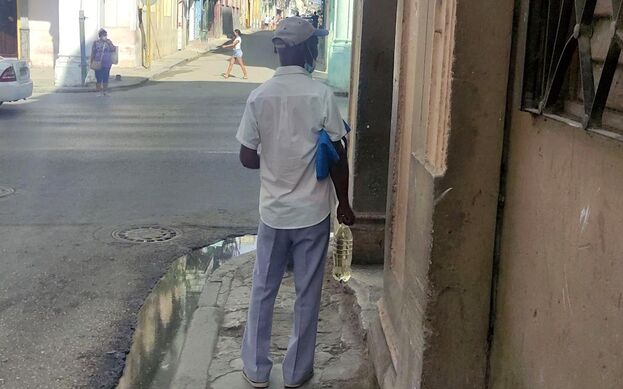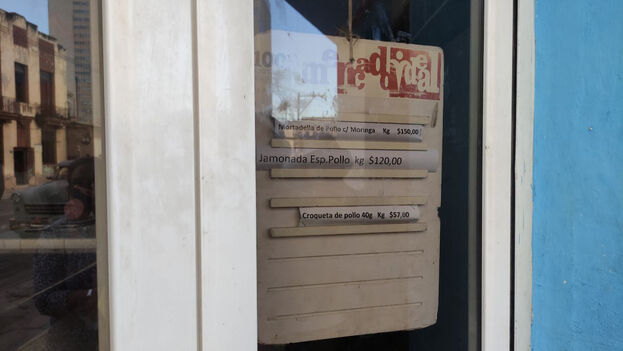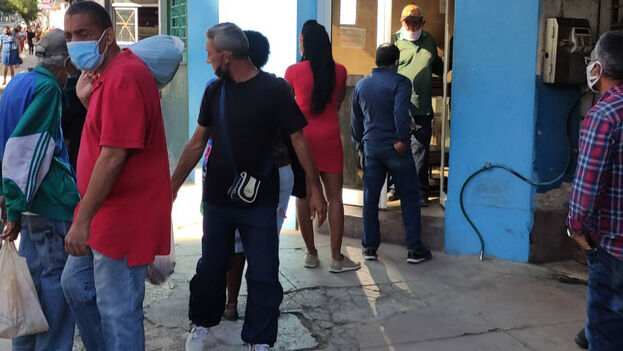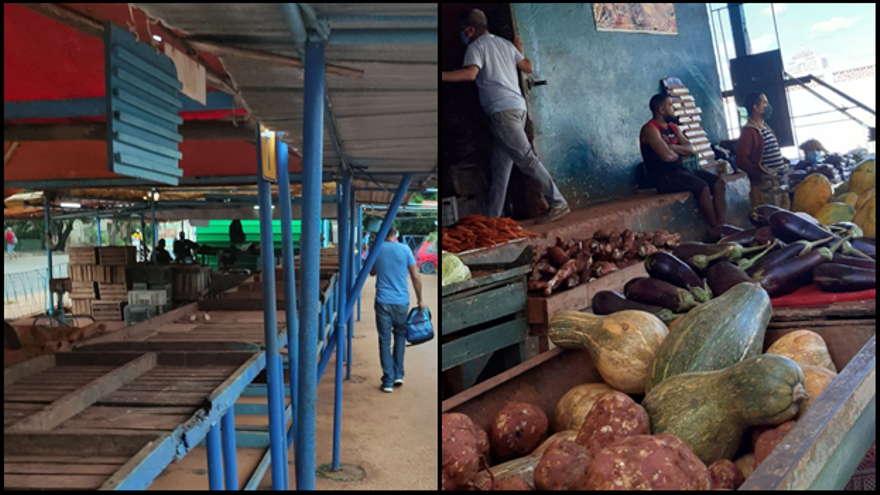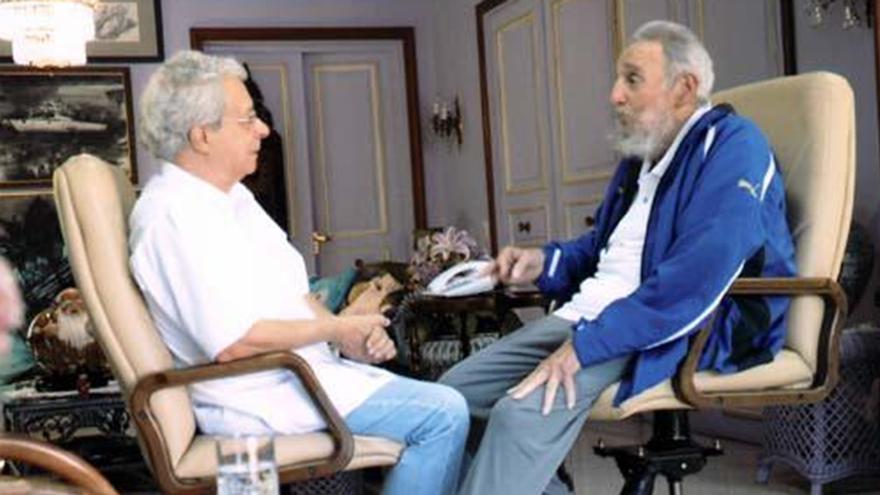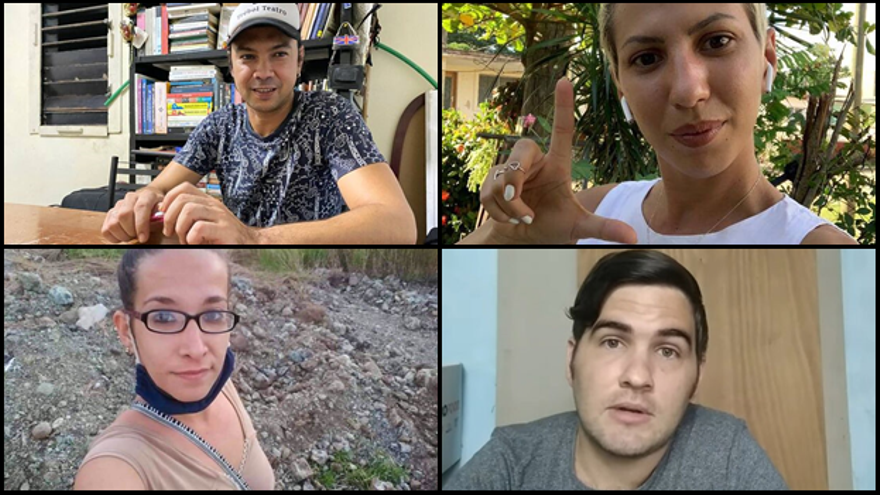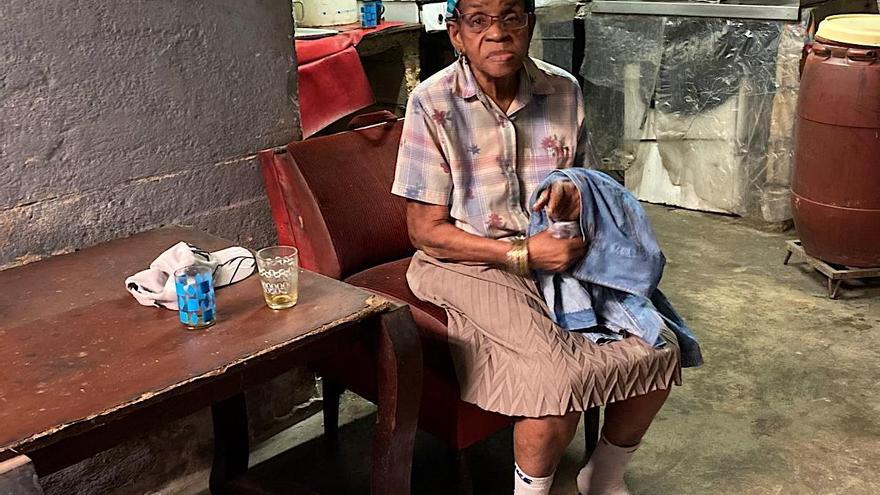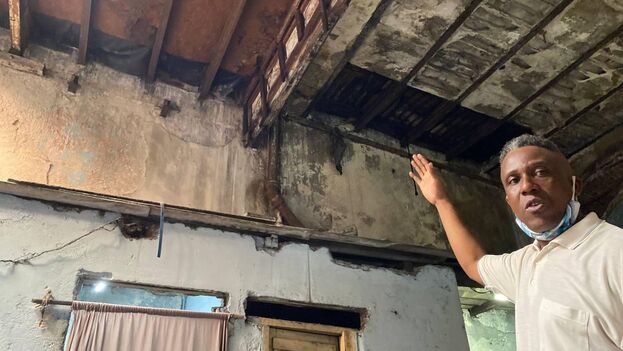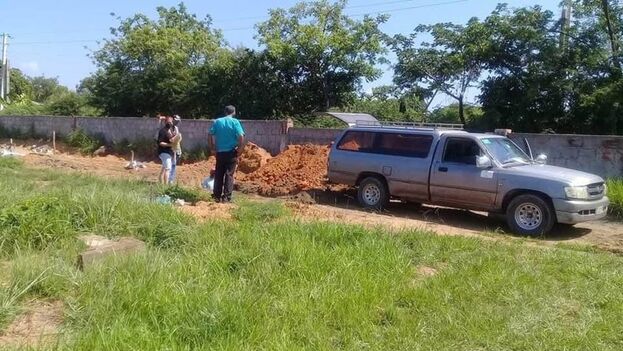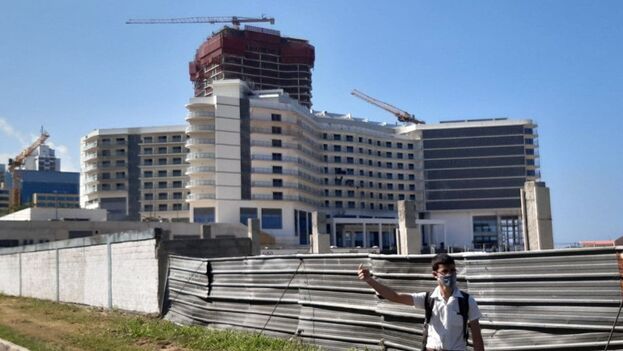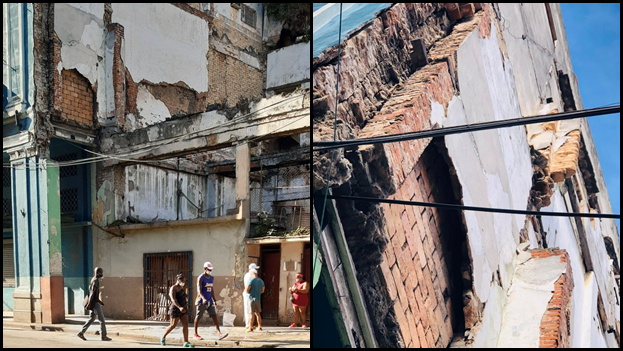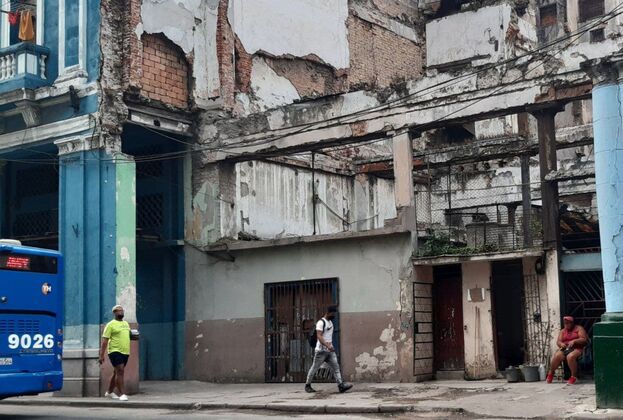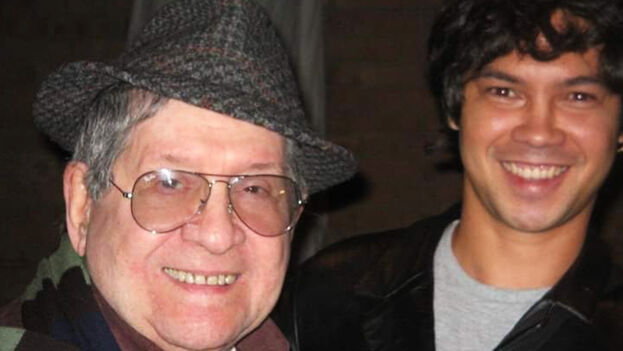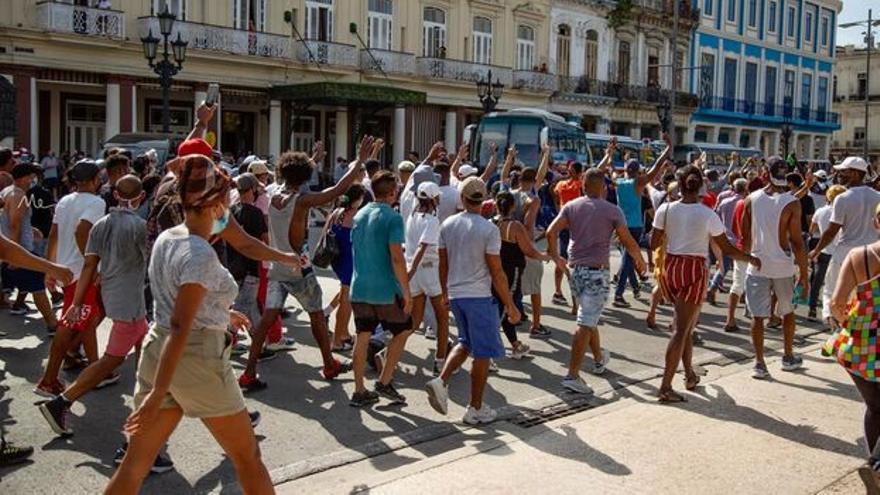
![]() 14ymedio, Havana, 23 December 2021 — Great concern reigned this Thursday among the relatives of the 15 July 12th protesters in La Güinera, regarding the sentences of 12 to 30 years requested by the Prosecutor’s Office for the crime of sedition. According to the mothers interviewed by 14ymedio, the Havana court where the trial was held between December 14 and 16 has verbally ratified the prosecution’s requests, without delivering any brief. On the other hand, legal sources assure that the sentences have not yet been communicated.
14ymedio, Havana, 23 December 2021 — Great concern reigned this Thursday among the relatives of the 15 July 12th protesters in La Güinera, regarding the sentences of 12 to 30 years requested by the Prosecutor’s Office for the crime of sedition. According to the mothers interviewed by 14ymedio, the Havana court where the trial was held between December 14 and 16 has verbally ratified the prosecution’s requests, without delivering any brief. On the other hand, legal sources assure that the sentences have not yet been communicated.
The protest in La Güinera, which began around four in the afternoon on Monday the 12th, was a replica of the popular protests that shocked the entire country on Sunday, July 11.
In an attempt to clarify the confusing situation created by the lack of transparency of Justice, this newspaper has contacted the group Justicia 11J [Justice 11July], which works on arrests for political reasons in Cuba and compiles, with all possible rigor, exhaustive information on the trials. This platform, which works closely with the Cubalex legal information center, is not aware that the court has delivered its judgments in the La Güinera case.
The situation is the same with the lawyer Eloy Viera, who states that “what is legally established in these cases is that the sentences are not offered verbally but days later in writing… What we can assure so far is that the trials were held and the defendants await the document that legally determines the sanction they must comply with,” he said.
The excessive requests of the Prosecutor’s Office contrast with the impunity accorded so far to Police Second Lieutenant Yoennis Pelegrín Hernández, who shot Diubis Laurencio Tejeda in the back on July 12 when he was participating in the La Güinera demonstration. The authorities opened an investigation more than two months ago and, although it was leaked that the agent would be tried for murder and injuries, no continue reading
On the other hand, for Dayron Martín Rodríguez and Miguel Páez Estiven, both 25 years old, the Prosecutor’s Office requests a sentence of 30 years in prison. For José Luis Sánchez Tito, 22 years in prison, and 20 years for Alexander Guillermo Martínez Amoroso (age 25), Lázaro Zamora González (age 20), Frank Aldama Rodríguez (age 20) Alexis Sosa Ruiz (age 20), Dianyi Liriano Fuentes (age 20) and Orlando Carvajal Cabrera, just 19 years old.
In addition, the requested penalties are 18 years for Elier Padrón Romero, Marlon Brando Díaz Oliva and Jesús Enrique Vázquez Cabrera, 15 years for Brusnelvis Adrián Cabrera Gutiérrez and 12 years for Leoalys de la Caridad Valera Vázquez, who arrived in court handcuffed despite being seven months pregnant.
The relatives of the prisoners have denounced the lack of guarantees, as well as the fact that only one relative was allowed to enter for each defendant, while the police presence was very strong and visible.
The court was made up of soldiers from the National Directorate of Jails and Prisons in Vedado, in the Plaza de la Revolución municipality and, according to the families, the defendants were interrupted on numerous occasions when they testified, while their lawyers were very limited in their work.
According to the Justicia 11J and Cubalex platform, there were 1,314 detainees during the 11 July protests, of which at least 696 remain in prisons while 570 have already been released and others are awaiting trial under a pre-trial measure of home detention or freedom under bail.
The first cases were summarily resolved, many times with fines, but those accused of more serious crimes, ongoing in recent weeks, are receiving penalties ranging from eight to 30 years. Some speculate that the Government will grant an amnesty to some of the 11J protestors jailed in order to improve their image, and even some relatives have already requested it by letter to Miguel Díaz-Canel.
The document was delivered this Monday to the State Council’s Office of Attention to the Population, with more than 150 signatures, including that of a group of friends who support the detainees. The text requests an amnesty, pardon or dismissal for the hundreds of political prisoners detained in those days of the summer and calls for Díaz-Canel “a gesture of height” that puts an end to the suffering of families when they are separated from their loved ones .
List of the 15 inmates of La Güinera, with the age of each one and the years in prison requested by the Prosecutor’s Office:
Dayron Martín Rodríguez (age 25 / 30 years in prison)
Miguel Páez Estiven (age 25 / 30 years in prison)
José Luis Sánchez Tito (age 20 / 22 years in prison)
Frank Aldama Rodríguez (age 20 / 22 years in prison)
Alexander Guillermo Martínez Amoroso (age 25 / 20 years in prison)
Lázaro Zamora González (age 20 / 20 years in prison)
Alexis Sosa Ruiz (age 25 / 20 years in prison)
Dianyi Liriano Fuentes (age 20 / 20 years in prison)
Orlando Carvajal Cabrera (age 19 / 20 years in prison)
Marlon Brando Díaz Oliva (age 20 / 18 years in prison)
Elier Padrón Romero (age 25 / 15 years in prison)
Jesús Enrique Vázquez Cabrera (age 20 / 18 years in prison)
Karen Vázquez Pérez (age 18 / 15 years in prison)
Brusnelvis Adrián Cabrera Gutiérrez (age 20 / 15 years in prison)
Leoalys de la Caridad Valera Vázquez (age 20 / 12 years in prison)
____________
COLLABORATE WITH OUR WORK: The 14ymedio team is committed to practicing serious journalism that reflects Cuba’s reality in all its depth. Thank you for joining us on this long journey. We invite you to continue supporting us by becoming a member of 14ymedio now. Together we can continue transforming journalism in Cuba.

